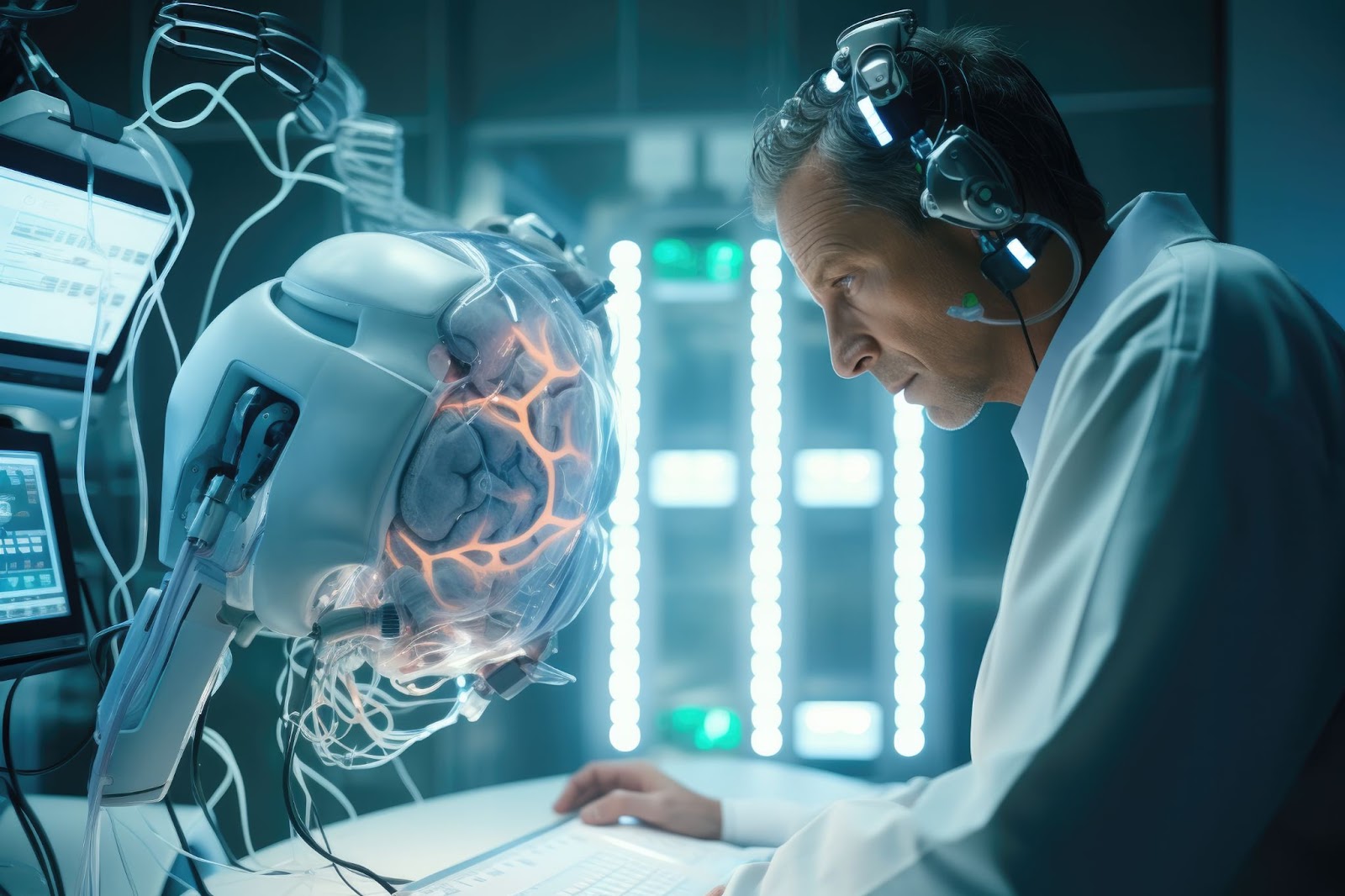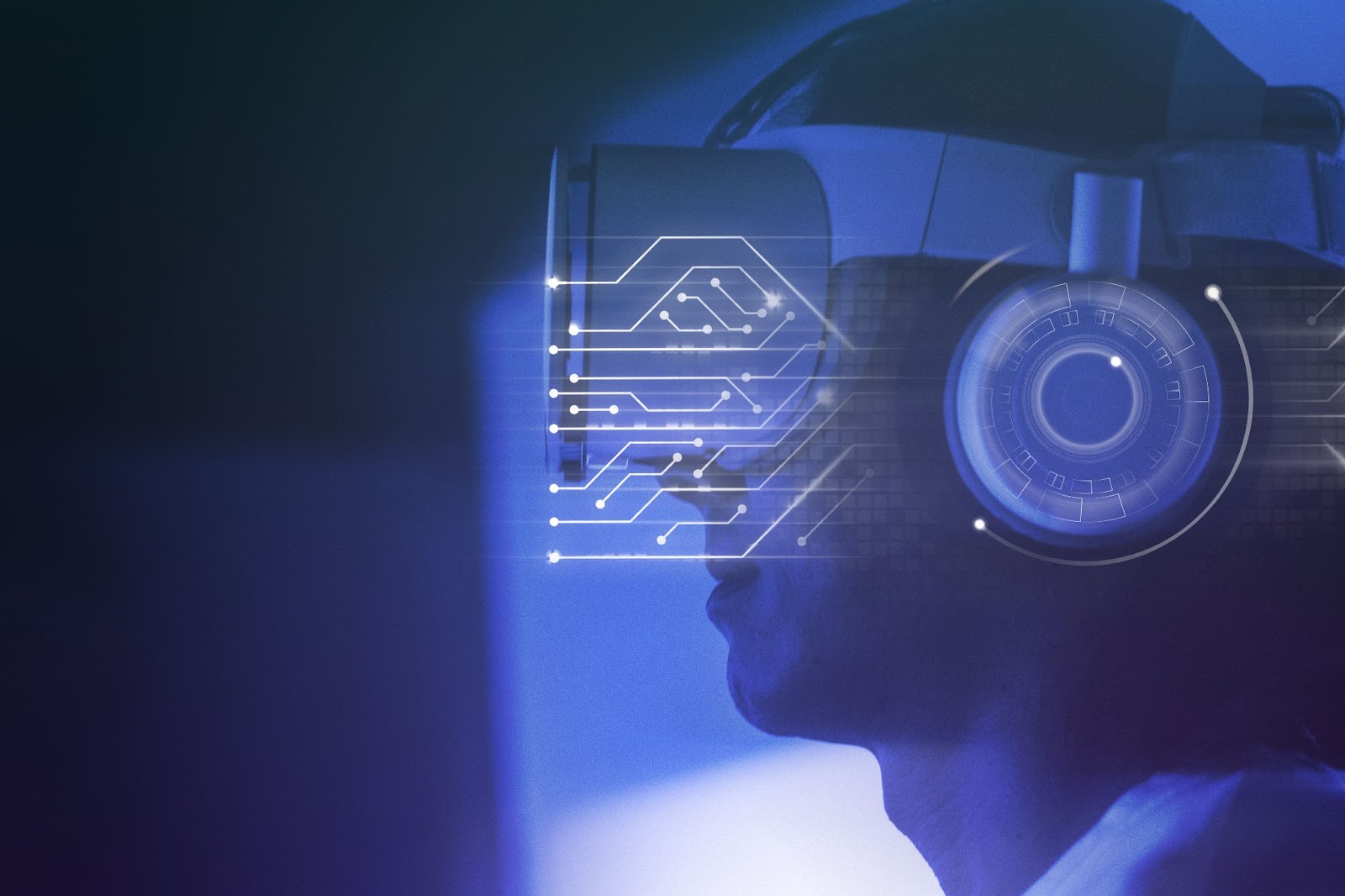- 1. What is Predictive AI in Healthcare?
- 2. Enhancing Early Diagnosis
- 3. Personalized Treatment Plans
- 4. Predicting Disease Outbreaks
- 5. Improving Hospital Operations
- 6. AI's Role in Preventive Care
- 7. Addressing Challenges in Predictive AI in Healthcare
- 8. The Future of Predictive AI in Healthcare
- 9. CBSL’s Healthcare Software
- 10. Frequently Asked Questions
Highlights of the Blog
-
AI helps catch diseases like cancer early by analyzing medical data, leading to better treatment outcomes.
-
AI creates tailored treatment plans based on each patient’s history, genetics, and lifestyle for more effective care.
-
AI predicts health risks, allowing doctors to offer preventive measures, improving health and reducing costs.
Highlights of the Blog:
-
AI helps catch diseases like cancer early by analyzing medical data, leading to better treatment outcomes.
-
AI creates tailored treatment plans based on each patient’s history, genetics, and lifestyle for more effective care.
-
AI predicts health risks, allowing doctors to offer preventive measures, improving health and reducing costs.
The healthcare industry is rapidly evolving, driven by advancements in technology. Among these innovations, artificial intelligence (AI) stands out as a transformative force.
Predictive AI in healthcare is changing how medical professionals approach patient care, diagnosis, and treatment planning.
By analyzing vast amounts of data, AI enables healthcare providers to make more informed decisions, predict potential health issues, and create personalized care plans.
In this blog, we will explore the role of predictive AI in healthcare and how it is revolutionizing the medical field.
1. What is Predictive AI in Healthcare?

Predictive AI in healthcare uses advanced algorithms to analyze large datasets and predict future health outcomes.
It helps identify patterns that humans might miss, enabling earlier disease detection, better risk assessment, and personalized treatment plans.
For example, AI can predict a patient’s risk of developing conditions like diabetes or heart disease based on their health history and lifestyle.
Predictive analytics also helps hospitals manage resources more effectively, addressing issues like staffing shortages—something 94% of registered nurses report as a major challenge in their workplaces. No doubt, it is the future of healthcare software and the most needed tech out there.
2. Enhancing Early Diagnosis
One of the most significant benefits of predictive AI in healthcare is its ability to enhance early diagnosis.
Early detection of diseases can be crucial in determining the success of treatment, especially in life-threatening conditions like cancer.
AI can analyze complex imaging data from MRI scans, CT scans, and X-rays to identify anomalies that may indicate the early stages of disease.
In oncology, for instance, AI algorithms can detect minute irregularities in imaging results that could be missed by the human eye.
By integrating predictive AI in healthcare, radiologists can significantly improve their diagnostic accuracy, leading to earlier intervention and better patient outcomes.
3. Personalized Treatment Plans
Every patient is unique, and what works for one person may not work for another. Predictive AI in healthcare allows creation of personalized treatment plans by analyzing individual patient data, including genetic information, medical history, and lifestyle choices.
This approach is particularly valuable in areas like oncology and pharmacology, where treatment plans often need to be tailored to the individual’s specific biology.
For instance, AI can analyze a cancer patient’s genetic makeup to predict how they will respond to certain types of chemotherapy or immunotherapy.
By customizing treatments based on predictive analytics, healthcare providers can offer more effective therapies, reduce adverse side effects, and improve the overall quality of care.
4. Predicting Disease Outbreaks
Predictive AI in healthcare also plays a critical role in public health by predicting disease outbreaks and epidemics.
By analyzing patterns in health data, such as hospital admissions, Google searches, and social media posts, AI can detect the early signs of a potential outbreak.
This information allows governments and healthcare organizations to prepare in advance, allocate resources more efficiently, and implement preventive measures to contain the spread of disease.
For example, during the COVID-19 pandemic, AI-driven predictive analytics helped track the spread of the virus, forecast infection rates, and optimize resource allocation. This capability is invaluable in managing both current and future public health crises.
5. Improving Hospital Operations
Predictive AI in healthcare isn't just for patient care—it also transforms hospital operations.
By analyzing data on patient admissions and trends, predictive analytics helps hospitals manage patient flow, optimize staff schedules, and allocate resources more efficiently.
For example, AI can predict periods of high demand and adjust staffing levels to ensure smooth operations.
It can also forecast supply needs, ensuring that hospitals have enough equipment, medications, and supplies to manage patient surges.
This leads to reduced wait times, better patient satisfaction, and cost savings. AI and machine learning are expected to help reduce healthcare costs by $13 billion by 2025.
6. AI's Role in Preventive Care
Preventive care is one of the cornerstones of healthcare, and predictive AI in healthcare is taking it to new heights. By analyzing patient data and identifying risk factors, AI can help predict which patients are more likely to develop chronic conditions or experience adverse health events.
This allows healthcare providers to intervene early and offer preventive care, such as lifestyle recommendations, medications, or monitoring programs.
For example, AI can analyze wearable device data to predict the likelihood of a heart attack or stroke in high-risk patients. With this information, doctors can take proactive steps to reduce the risk, such as adjusting medications or recommending lifestyle changes.
This preventive approach not only improves patient outcomes but also reduces healthcare costs by preventing expensive emergency treatments.
7. Addressing Challenges in Predictive AI in Healthcare
While predictive AI in healthcare has huge potential, it comes with challenges. One major concern is data privacy. Since healthcare data is highly sensitive, hospitals must have strong security measures to protect patient information, as AI systems rely on large amounts of data.
Another challenge is the risk of bias in AI algorithms. If the data used to train these models isn’t diverse, the predictions could lead to unequal care for different patient groups. To avoid this, hospitals need to ensure they use data that represents all populations.
8. The Future of Predictive AI in Healthcare

The future of predictive AI in healthcare looks bright. As technology advances, AI will get even better at analyzing data and making accurate predictions, leading to more personalized care, earlier disease detection, and smoother healthcare operations.
AI will also work with new technologies like genomics and precision medicine, helping predict disease risks based on a person’s genetic makeup. On top of that, AI could reduce administrative tasks for doctors by about 20%, giving them more time to focus on patient care.
CBSL’s Healthcare Software
CBSL's healthcare software specializes in intelligent data processing for patient records, ensuring accuracy, security, and compliance management. It streamlines medical record management, facilitating quick access to records and enabling the retrieval and analysis of crucial healthcare data.
This optimization of operations enhances patient care by processing patient records, medical records, X-rays, administration records, and more. With a focus on innovation, CBSL is dedicated to creating future possibilities in healthcare. For more information, check out CBSL's healthcare solutions today!
Conclusion
Predictive AI in healthcare analytics is revolutionizing the healthcare industry, offering unprecedented opportunities to improve patient outcomes, enhance preventive care, and optimize hospital operations.
From early diagnosis to personalized treatment plans and disease outbreak prediction, the role of predictive AI in healthcare analytics is expansive and impactful. As the technology continues to evolve, its potential to transform healthcare will only grow, making it an essential tool for healthcare providers worldwide.
Frequently Asked Questions
1. What Are AI's Predictive Capabilities In Healthcare?
AI's predictive capabilities in healthcare allow for accurate forecasting of patient outcomes, disease progression, and treatment efficacy based on historical data. By analyzing large volumes of patient records, medical images, and clinical data, AI algorithms can identify patterns that may not be apparent to human doctors.
CBSL integrates AI, Machine Learning (ML), and Natural Language Processing (NLP) technologies to process healthcare data and provide insights that help doctors predict potential health issues, allowing for early intervention and personalized treatment plans.
2. What Is A Predictive Model In Healthcare?
A predictive model in healthcare is a statistical or machine learning-based approach used to anticipate future outcomes based on current and historical data. Predictive models analyze patient data, such as medical history, lab results, and lifestyle factors, to forecast the likelihood of events like disease recurrence, patient readmission, or treatment success.
CBSL’s data analysis and intelligent data processing solutions enable healthcare providers to build and leverage such predictive models for better decision-making, improving patient outcomes, and optimizing hospital operations.
3. What Type Of AI Is Used In Healthcare?
Several types of AI are used in healthcare, including:
-
Machine Learning (ML): Helps in analyzing patient data and making predictions about treatment outcomes, disease progression, or patient readmissions.
-
Natural Language Processing (NLP): Extracts insights from unstructured clinical data, such as doctor’s notes or medical research papers.
-
Computer Vision: Used for analyzing medical images like X-rays or MRIs to detect anomalies or diseases.
-
Predictive Analytics: Uses data to predict potential health risks and improve patient care. CBSL leverages AI, ML, and NLP in their solutions to process and analyze patient records, medical records, X-rays, and administration records, ensuring efficient healthcare management.
4. How Is Predictive Analytics Used In Healthcare?
Predictive analytics in healthcare involves using historical patient data, medical records, and diagnostic results to predict future health events, allowing healthcare providers to proactively manage patient care. It helps in identifying high-risk patients, predicting disease outbreaks, and optimizing treatment plans.
CBSL specializes in intelligent data processing and automation for medical record management, using AI to predict health trends and improve operational efficiency. By analyzing large volumes of patient data securely and accurately, CBSL’s solutions provide quick access to insights that enhance patient care and facilitate better clinical decision-making.